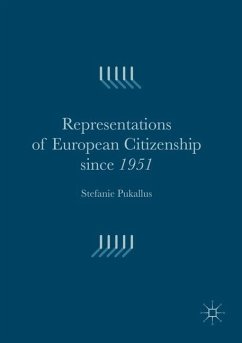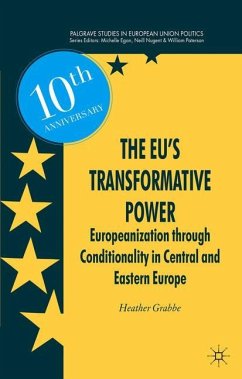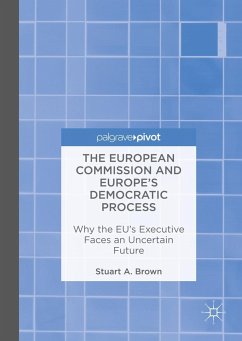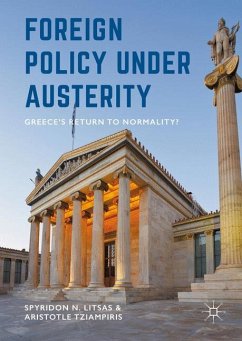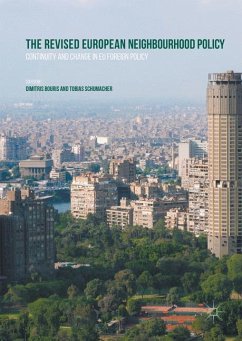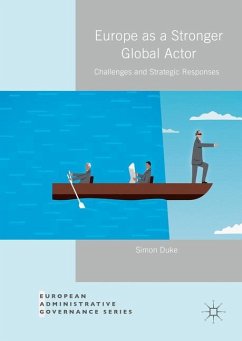
Representations of European Citizenship since 1951
Versandkostenfrei!
Versandfertig in 6-10 Tagen
38,99 €
inkl. MwSt.
Weitere Ausgaben:

PAYBACK Punkte
19 °P sammeln!
This book analyses the role of the EuropeanCommission in defining European identity and citizenship. European citizenship and itspublic communication have been a continuous and persistent concern for theEuropean Commission since the beginning of the European integration process, having communicated five different versions of European citizenship since 1951: Homo Oeconomicus (1951-1972), A People's Europe(1973-1992), Europe of Transparency (1993-2004), Europe of Agorai (2005-2009)and Europe of Rights (2010-2014). These varying representations are addressed to reveal how the European Commission ...
This book analyses the role of the European
Commission in defining European identity and citizenship. European citizenship and its
public communication have been a continuous and persistent concern for the
European Commission since the beginning of the European integration process, having communicated five different versions of European citizenship since 1951: Homo Oeconomicus (1951-1972), A People's Europe
(1973-1992), Europe of Transparency (1993-2004), Europe of Agorai (2005-2009)
and Europe of Rights (2010-2014). These varying representations are addressed to reveal how the European Commission conceived of and attempted
to facilitate the development of a Civil Europe. Ultimately this narrative,
which is based upon an analysis of public communication policy papers
and interviews with senior European Commission officials past and present,
tells a story about changing identities and about who we as Europeans
might actually be and what kind of Europe we might actually belong to.
Commission in defining European identity and citizenship. European citizenship and its
public communication have been a continuous and persistent concern for the
European Commission since the beginning of the European integration process, having communicated five different versions of European citizenship since 1951: Homo Oeconomicus (1951-1972), A People's Europe
(1973-1992), Europe of Transparency (1993-2004), Europe of Agorai (2005-2009)
and Europe of Rights (2010-2014). These varying representations are addressed to reveal how the European Commission conceived of and attempted
to facilitate the development of a Civil Europe. Ultimately this narrative,
which is based upon an analysis of public communication policy papers
and interviews with senior European Commission officials past and present,
tells a story about changing identities and about who we as Europeans
might actually be and what kind of Europe we might actually belong to.





